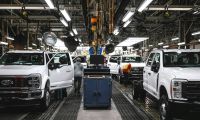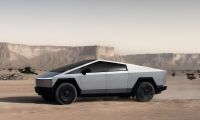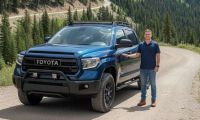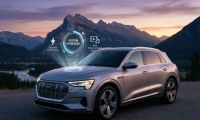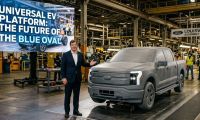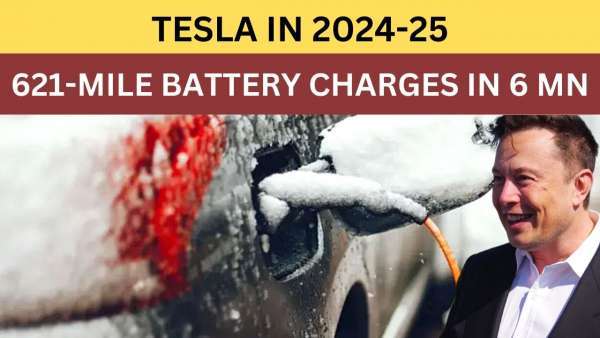
Chinese startup, Greater Bay Technology, has unveiled its groundbreaking Phoenix cell, a battery with a 621-mile range that charges in just six minutes and works flawlessly in any weather condition. The revolutionary technology could potentially revolutionize the electric vehicle (EV) industry and raise questions about Tesla's future battery choices, Bloomberg reports.
The Phoenix Cell tackles a persistent challenge faced by EVs: battery efficiency in extreme temperatures. Traditional EV batteries often suffer from reduced charging capacity in freezing conditions, limiting the range of the vehicles. Greater Bay Technology's solution utilizes superconducting materials and thermal management, allowing the battery to swiftly heat up from -4°F to 77°F (-20°C to 25°C) in five minutes.
With the Phoenix cell's quick warm-up capability, the battery can be rapidly charged and achieve full capacity within just six minutes. The technology not only addresses the lengthy charging time for EVs but also ensures consistent range performance regardless of weather conditions. This remarkable feature aligns with Greater Bay Technology's vision of making EVs as convenient and practical as their gasoline-powered counterparts.
Huang Xiangdong, co-founder of Greater Bay Technology and an industry veteran, aims to increase the mass adoption of EVs through this game-changing battery technology. Having previously worked on popular EV models, including GAC's Aion, Huang is confident that the Phoenix cell will push the boundaries of EV capabilities and drive broader acceptance of electric transportation.
As Greater Bay Technology garners attention and achieves unicorn status with a valuation of $1 billion, the startup is positioned alongside established battery manufacturers like Contemporary Amperex Technology Limited (CATL) and BYD in China. While the Phoenix cell is set to debut in GAC's Aion EVs next year, industry experts are contemplating the potential future implications for Tesla.
Tesla has been known to prioritize cutting-edge battery technology, partnering with companies like CATL and Panasonic for their vehicle batteries. Given Tesla's commitment to pushing the boundaries of EV range and performance, it wouldn't be surprising if the company eventually explores the use of Greater Bay Technology's Phoenix cell. With its impressive range, rapid charging capability, and resistance to extreme weather, the Phoenix cell aligns with Tesla's pursuit of pushing EV capabilities to new heights.
While no official announcements have been made regarding a partnership between Tesla and Greater Bay Technology, I think the rise of this startup and its innovative battery technology raises speculation about a potential collaboration in the future. As the EV industry evolves, Tesla's choice of batteries will play a crucial role in maintaining its competitive edge and fulfilling its mission of accelerating the world's transition to sustainable energy.
In my personal opinion Greater Bay Technology's Phoenix cell has the potential to reshape the EV landscape, and its compatibility with any weather condition is a significant leap forward. As EV enthusiasts eagerly await the Phoenix cell's debut next year, the question remains: Will Tesla seize this opportunity and embrace the battery that could catapult its electric vehicles to new levels of range and performance? The future of Tesla and the EV industry as a whole may be more electrifying than ever before.
Armen Hareyan is the founder and the Editor in Chief of Torque News. He founded TorqueNews.com in 2010, which since then has been publishing expert news and analysis about the automotive industry. He can be reached at Torque News Twitter, Facebok, Linkedin and Youtube.
Set Torque News as Preferred Source on Google

